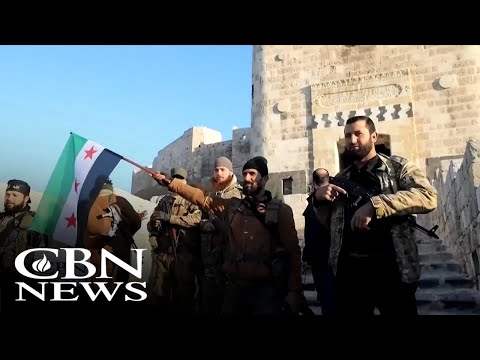In the Middle East, complex and evolving dynamics reveal a landscape fraught with challenges and potential opportunities for peace. Recent developments indicate a ceasefire with Hezbollah, leading to renewed negotiations between Israel and Hamas. President Biden’s National Security advisor has commented on this situation, emphasizing the hope for a ceasefire and a potential hostage deal. However, many in the evangelical community watch these events closely, aware of the deep-seated conflicts that define the region and the moral implications tied to the lives and freedoms of individuals caught in the crossfire.
As Israel seeks to protect its citizens, they continue to monitor rising threats from their northern neighbor, especially following the Syrian regime’s struggles against Islamic rebels who have seized control of Aleppo. This shift in power could have significant ramifications not only for the nation of Israel but also for the Christian communities in Syria. The historical presence of Christians in Aleppo, dating back thousands of years, is now at risk. With reports of forced conversions and systemic violence against Christians in areas controlled by these radical groups, the situation calls for urgent prayer and action from the global Christian community.
The implications of these geopolitical struggles extend far beyond territorial disputes; they are intrinsically tied to the beliefs and values that many hold dear. The evangelical perspective emphasizes the sanctity of life and the importance of standing against injustice. As Christians observe the plight of innocents caught in the midst of violence, they are reminded of their moral obligation to advocate for peace and protection for all, particularly vulnerable populations like the Syrian Christians. The suffering endured by these communities echoes the biblical call to care for the least among us, adding a layer of urgency to the plight of those facing persecution.
Moreover, as discussions of war crimes arise, there appears to be an inconsistency in international responses towards different nations. The Christian community can find a voice amidst this narrative by advocating for justice in all circumstances, revealing the hypocrisy embedded in selective outrage. While the leaders of Israel face scrutiny for their defensive actions, the cruelty faced by Syrian citizens under the regime of President Assad and the Islamic State remains largely unaddressed. This reality serves as a call for Christians to advocate for fairness and truth, recognizing that God’s justice must extend to all—regardless of nationality or affiliation.
The situation remains delicate, as recent events showcase the potential for ceasefires that may only serve as strategic pauses in ongoing hostilities. Understanding the concept of a temporary ceasefire, evangelical Christians can be watchful and discerning. While there is hope for negotiations, believers should remain dedicated to prayer and support for peace initiatives that genuinely seek to honor life and human dignity—elements that resonate deeply within their faith. As the world watches these negotiations unfold, the call for Christians to be peacemakers becomes ever more essential, grounding their actions in love and compassion for all affected by this ongoing conflict. In such tumultuous times, the call to faith and the moral imperative to seek justice and reconciliation are more vital than ever.



